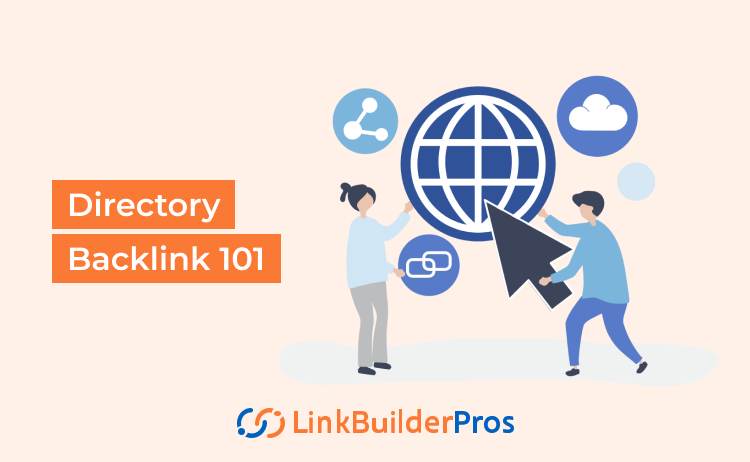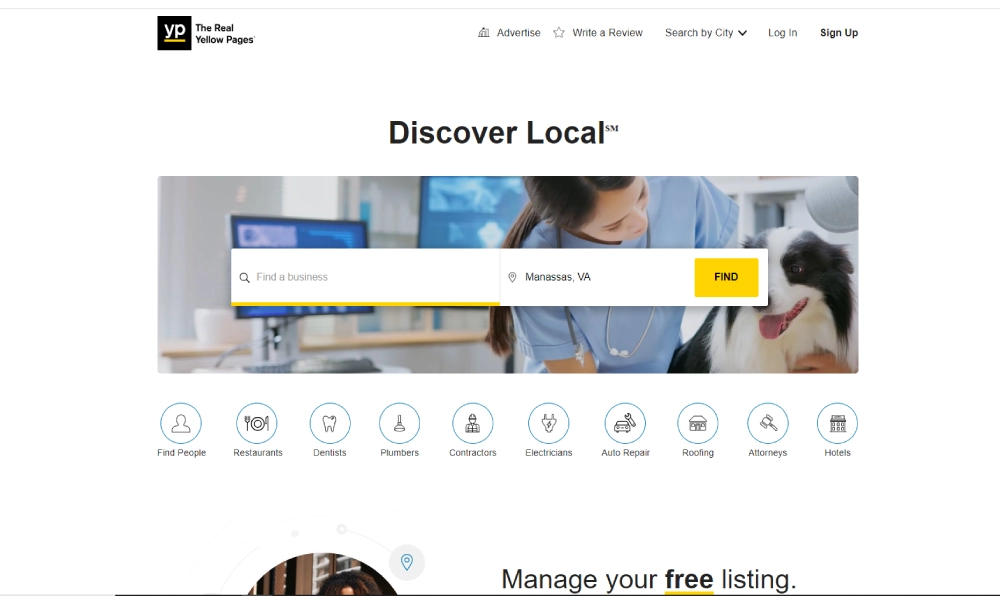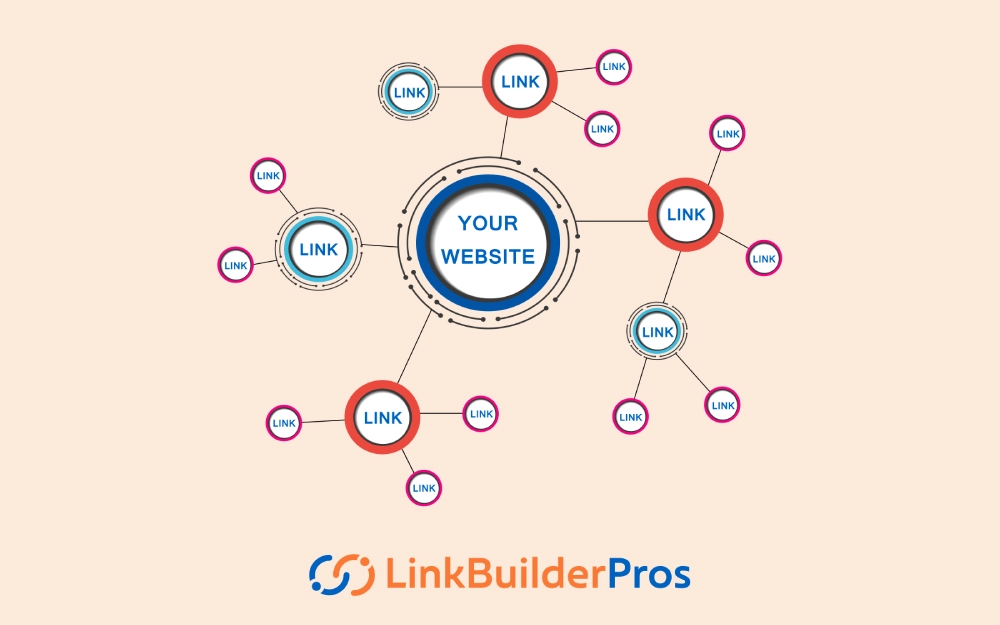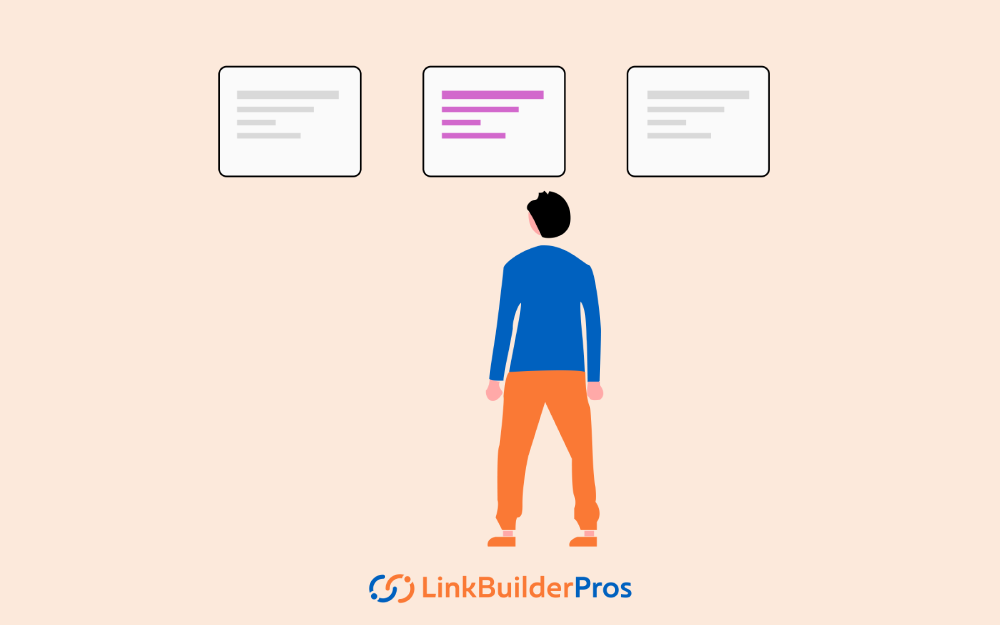Blogs
Practical Insights & Latest Happenings
Don’t miss out on the latest trends and info on SEO, search engines, social media, and more.
April 5, 2024
mothasim

Although directory backlinks have lost their effectiveness over time since Google now prefers natural sources, they can still help diversify your backlink profile and drive more quality traffic to your site.
However, if you want to leverage the benefits of web directory backlinks, the first rule is to always go for highly credible directories only.
Here we have discussed the ins and outs of directory backlinks to help strengthen your backlink profile and boost your SEO.
In simple words, a directory website lists businesses based on categories and subcategories. How does that help you?
Let’s say you’re looking for the best web development agency in the US. If you google it, you’ll be presented with such directory sites where you’ll find a list of the top agencies in America. As a result, you won’t have to manually scour through numerous agency websites to find the most reliable ones.
While search engines index and rank websites with their algorithms and keywords, web directories use human editors to review and categorize websites manually.
Directory link building means adding your website to online directory listings to get quality backlinks. But you’ve to target only popular and authoritative directories in your industry to help improve your rankings.
However, Google doesn’t value directories as highly now. So, the best approach is being selective – submit to just a few very reputable, niche-specific directories rather than every directory out there.
Regularly updating listings is also important to maintain accurate information and keep getting value from referral traffic and brand exposure, in addition to any SEO benefits from the backlinks themselves.

Directory link building can offer several benefits to your website, including:
Directory backlinks can help boost your domain authority (DA) and page authority (PA). DA and PA are metrics developed by Moz used to predict a website’s ranking on search engine result pages (SERPs).
According to various sources, including Analytify, WordStream, MonsterInsights, and Stan Ventures, acquiring high-quality backlinks from authority sites is a key strategy for increasing domain authority.
These backlinks are essential for improving domain authority and a crucial factor in the domain authority calculation. The quality and quantity of links pointing to a website significantly impact its domain authority.
Additionally, creating high-value content that is link-worthy can lead to more sharing and backlinks from high-authority websites, further contributing to an increase in domain authority.
Directory backlinks can drive targeted, relevant traffic to your website by increasing visibility to users actively searching for your niche. Listings in niche, location, or category-specific directories make it easy for interested consumers to find your business.
Backlinks from quality directories also benefit your SEO by serving as votes of confidence that improve rankings, especially for competitive keywords. Moreover, backlinks provide referral traffic – visitors who arrive via links on other sites tend to convert better.
Increasing your DA score is crucial since it reflects the potential for your site to rank well. Directory link building is one of the effective techniques to enhance DA.
Here are some strategies to leverage directory link building for establishing a strong online presence:

As said before, when your website is listed in directories, it increases its visibility to users who are actively looking for information or services related to your niche. This can lead to increased brand awareness and recognition.
While the impact of directory listings has diminished, niche directories that are highly relevant to your business can still provide valuable backlinks and drive targeted traffic. It’s important to focus on quality over quantity and avoid any directories that don’t seem reputable or relevant.
General web directories are platforms that categorize and list websites across various industries and topics. They were once a significant part of the internet and SEO strategy. Examples include popular directories like Yelp, Yellow Pages, and DMOZ.
However, their relevance has evolved over time. Here are some characteristics and the pros and cons of submitting to general directories:
Advantages:
Disadvantages:
Business directories are listings and profiles for companies to display information about their business. The Better Business Bureau (BBB) is a popular directory for finding businesses.
Here are some tips for optimizing your directory listings:
When considering business directory listings, it’s important to assess whether you want to target local or global markets. If your business primarily serves a local community, focusing on local business directories significantly enhances your visibility within your target area.
On the other hand, if your products or services have a global appeal, listing your business in directories with a broader reach will help you connect with a wider audience.
Maintaining consistent Name, Address, and Phone Number (NAP) information across all business directory listings is crucial for several reasons.
Firstly, it reinforces your business’s credibility and trustworthiness since inconsistent information can cause confusion.
Secondly, Google uses NAP consistency as a ranking factor. So, ensuring uniformity across all listings can positively impact your local search visibility and SEO efforts.
By understanding the dynamics of local and global targeting and the significance of consistent NAP information, businesses can make informed decisions about their directory listing strategies, ultimately contributing to improved online visibility and customer engagement.
Global web directories like Yahoo Directory often catalog websites from all businesses and themes. Your listing becomes buried amid millions of other businesses unrelated to your niche.
Niche directories, on the other hand, focus on a particular industry, issue, or audience. For example, a directory dedicated entirely to eateries or SaaS providers. Websites like TripAdvisor, Houzz.com, and kbb.com are some practical examples of specialist directories.
Niche directories offer several advantages for businesses operating in specialized industries.
Firstly, they provide highly relevant backlinks that enhance your authority within a specific industry or niche.
Secondly, niche directories often have a more focused and engaged audience that increases the likelihood of attracting quality traffic and potential customers.
Moreover, niche directories are less competitive than broader directories, which means they rank higher easily.
Start by searching online for existing directory websites that target the same niche. Assess the number of existing directories and identify their strengths and weaknesses.
Understanding the demand for your niche is also crucial. We recommend that you focus on niches where there is a significant market size and unmet needs.
What’s more, it’s important to prioritize quality directories with active user engagement. This involves researching directories thoroughly, checking for recent updates, and reading reviews from both users and listed businesses.
When you’re deciding which directories to submit your website to, relevance should be your number one priority. Try to find directories that specifically cover your niche industry or target audience.
For example, if you own a dog training business, you’d want to look for popular pet and dog directories rather than submitting to large, general ones.
You’ll also want to closely evaluate the editorial standards and quality control of any potential directory. Do they have an application process or standards for evaluating listings? Do they regularly remove dead links and monitor quality?

User engagement and positive reviews are other good indicators of a quality directory. Check if local businesses and consumers actively recommend and rate the listings. High numbers of reviews and social shares imply an engaged user base.
On top of that, examine how long a directory has been around and its history in the industry. Those with an established presence tend to be more authoritative. Aim for directories that have been reputable hubs in their field for 5-10+ years rather than new upstarts.
Here are three ways to find the right directory for your business:
Online local business directories such as Google Business Profile, Superpages, Better Business Bureau, Hotfrog, and Yellow Pages are your top choices. By listing your business in relevant online local directories, you can enhance your local marketing strategy and ensure that you appear in local packs when people search for businesses in their area.
Pinpointing the perfect niche for your directory is essential. Popular niche ideas for directory websites include local businesses, professionals, and specific industries. By choosing a niche that resonates with your target audience, you can create a unique and valuable online directory that meets the specific needs of your users.
Some popular directories to consider submitting your business to are Google My Business, Yelp, Bing Places, and Yellow Pages. When choosing a directory, select platforms that are relevant to your industry or niche and cater to your target market.
Here are some potential disadvantages or downsides to be aware of with directory link building:
The right tools, resources, and communities can level up your technical expertise and stay updated on directory link building best practices as the space evolves.
Q. What types of directories should I focus on?
Ans. Prioritize niche directories highly relevant to your industry as well as local/regional directories for geo-targeted visibility. Avoid low-quality general web directories.
Q. How many directory links do I need?
Ans. Focus on quality over quantity. Just 10-20 citations on authoritative, closely aligned directories can make an impact. Too many links look unnatural.
Q. How often should I update my directory listings?
Ans. Ideally, check for broken links quarterly and update business info like address or phone number as needed. More frequent updates are encouraged for very engaged directories.
Q. Should I pay for premium directory listings?
Ans. Paid Boost options that increase click visibility can amplify results. But free listings on high-authority directories are still beneficial. Judge ROI on a case-by-case basis.
Q. How long does it take to see results?
Ans. Give high-quality links at least 3-6 months to accumulate before evaluating. Consider linking to great evergreen content to build authority over time.